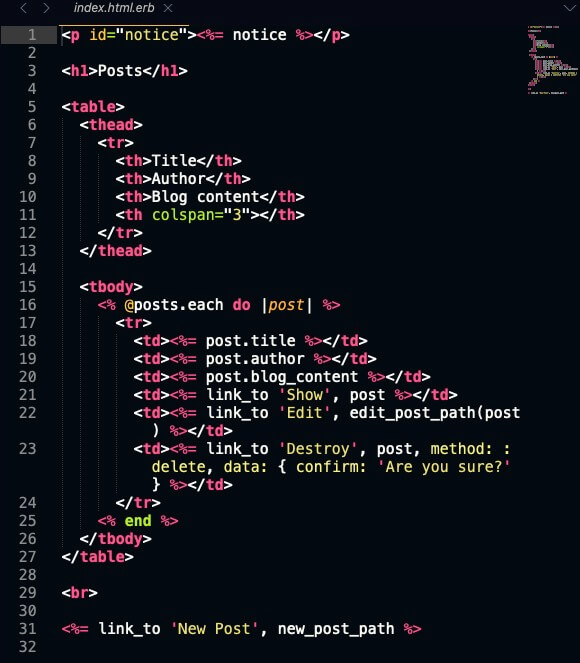Case Journeys
Exploring intriguing stories and insights from around the world.
Rails to Riches: Building Web Apps Like a Pro
Unlock the secrets to web app success! Discover expert tips and tricks in Rails to Riches and elevate your development game today!
Top 5 Tips for Mastering Ruby on Rails Development
Mastering Ruby on Rails development requires dedication and a strategic approach. Here are the top 5 tips to enhance your skills:
- Understand the MVC Architecture: Grasping the Model-View-Controller (MVC) architecture is crucial for building maintainable applications. Familiarize yourself with its components by visiting Rails Guides.
- Leverage Gems: Gems are libraries that enhance functionality and save time. Explore RubyGems.org to find useful gems that can streamline your development process.
Continuing with our list:
- Practice Test-Driven Development (TDD): Embracing TDD can lead to cleaner code and fewer bugs. Utilize tools like RSpec for thorough testing.
- Connect with the Community: Engaging with the Ruby on Rails community can provide invaluable resources and support. Join forums like Stack Overflow to ask questions and share knowledge.
- Keep Learning: Stay updated with the latest trends and practices in Ruby on Rails by following blogs like The Ruby on Rails Blog.

How to Build Scalable Web Applications with Ruby on Rails
Building scalable web applications with Ruby on Rails requires a solid understanding of both the framework and the principles of scalability. To start, it's essential to design your application with a modular architecture, which allows for easier expansion as your user base grows. Utilizing Rails Guides can provide you with best practices and patterns that promote maintainability and flexibility. Additionally, consider implementing caching strategies—such as fragment caching or low-level caching—to improve your application's performance. This way, you can serve dynamic content quickly without compromising user experience.
Another critical factor in building scalable applications is leveraging background jobs for long-running processes. This can be accomplished using tools like Sidekiq or Resque, which allow you to handle tasks asynchronously. By offloading these tasks, you reduce the load on your web servers and enhance responsiveness. Moreover, designing your Ruby on Rails application to interact with databases efficiently, using techniques like database indexing and query optimization, is crucial for scalability. Always monitor your application's performance with tools like New Relic to identify bottlenecks and adjust your architecture as necessary.
What Are the Best Practices for Rails Application Deployment?
Deploying a Rails application effectively requires attention to various best practices. First and foremost, it is essential to ensure that your production environment closely mirrors your development environment to mitigate deployment issues. Utilizing tools like Capistrano helps automate your deployment process and maintain consistency. Additionally, consider setting up a reliable version control system, such as Git, which not only tracks changes to your code but also allows easy rollbacks in case of deployment issues. Following these steps can greatly reduce the chances of encountering severe bugs during deployment.
Security is another critical aspect of Rails application deployment. Always ensure that your application and its dependencies are kept up-to-date with the latest security patches. Use tools like Bundler Audit to monitor vulnerabilities in your Gemfile. Furthermore, consider implementing a robust logging system to track application performance and user activity. In addition, utilizing a web application firewall (WAF) can help safeguard your application from common attacks. Adhering to these best practices will not only enhance the reliability and security of your Rails application but also improve the overall user experience.